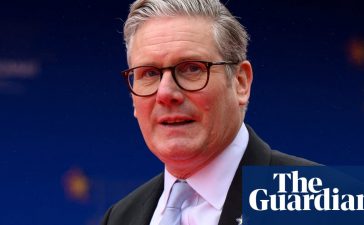
© Reuters. FILE PHOTO: Hungary’s Prime Minister Viktor Orban attends a European Union leaders summit, in Brussels, Belgium December 14, 2023. REUTERS/Yves Herman
By Charlotte Van Campenhout, Andrew Gray and Sabine Siebold
BRUSSELS (Reuters) -European Union leaders unanimously agreed on Thursday to extend 50 billion euros ($54 billion) in new aid to Ukraine, sending a message to the United States split on whether to keep backing Kyiv in its fight against Russia’s invasion.
The agreement overcomes weeks of resistance from Hungary and comes amid uncertainty over the future of U.S. aid. Kyiv relies heavily on Western support as the war, the biggest conflict in Europe since World War Two, nears its third year.
German Chancellor Olaf Scholz said he hoped the EU decision would help U.S. President Joe Biden convince Congress to follow suit.
“This … is also a good signal towards the U.S. The American president is a good friend and ally who is working hard to win support for his demands from the Congress,” Scholz said, his comments echoed by EU chiefs in Brussels.
Ukrainian President Volodymyr Zelenskiy praised the EU agreement, saying the aid would strengthen his country’s long-term economic and financial stability.
Ukraine’s dollar bonds gained on the news and Kyiv said it expected to receive the first tranche of 4.5 billion euros from the EU in March from a total of 50 billion euros to come from the bloc’s shared budget through 2027.
“The message is clear: Russia can’t count on any fatigue from the Europeans in their support to Ukraine,” said French President Emmanuel Macron.
The agreement comes after weeks of wrangling with Orban, who vetoed the aid last December.
On Thursday, he said he gave the green light after receiving assurances the aid would be used sensibly and would not come from EU funds that had been earmarked for Budapest from the bloc’s joint coffers.
The EU executive is withholding some 20 billion euros from Hungary over widespread accusations that Orban has damaged democracy at home during his 13 years in power.
‘IN OR OUT?’
Diplomats told Reuters that, in exchange for Hungary’s nod, the bloc did not commit to releasing any of the billions of euros of EU funds until Budapest meets conditions.
They said the deal includes a yearly discussion of the package and the option to review it in two years “if needed”, but no outright veto for Budapest.
In recent days, the EU has piled pressure on Orban to fall into line. Polish Prime Minister Donald Tusk told Orban on Thursday time was up for “games” and that Budapest needed to pick sides in the existential challenge posed by Russia’s war.
“He has to consider if he is in, or out,” Tusk said.
Orban has had many bitter run-ins with the EU over the rule of law in Hungary, and has increasingly criticised Western sanctions against Russia over the war in Ukraine. He has also cultivated closer ties with the Kremlin than EU peers.
A German diplomat said Orban felt at the summit that his increasing isolation in the bloc was “not comfortable”.
“The Hungarian economy is under pressure, that might have helped as well,” said the diplomat, who spoke under condition of anonymity. “Orban knows that he needs the EU.”
The EU leaders also agreed at their summit in Brussels on Thursday on an “urgent need” to accelerate the delivery of ammunition and missiles to Ukraine.
A day earlier, the EU executive said the bloc would fall far short of its target of sending Ukraine one million rounds of artillery shells by March.
The summit also stopped short of endorsing a call by some countries to inject 5 billion euros for Ukraine – on top of the 50 billion euros already agreed – into a broader military assistance fund, the European Peace Facility (EPF).
Germany has been calling for major reform of the system to take account of EU members’ bilateral military aid to Ukraine and Scholz said after the summit that Germany – the EU’s paymaster – cannot manage military support alone.








